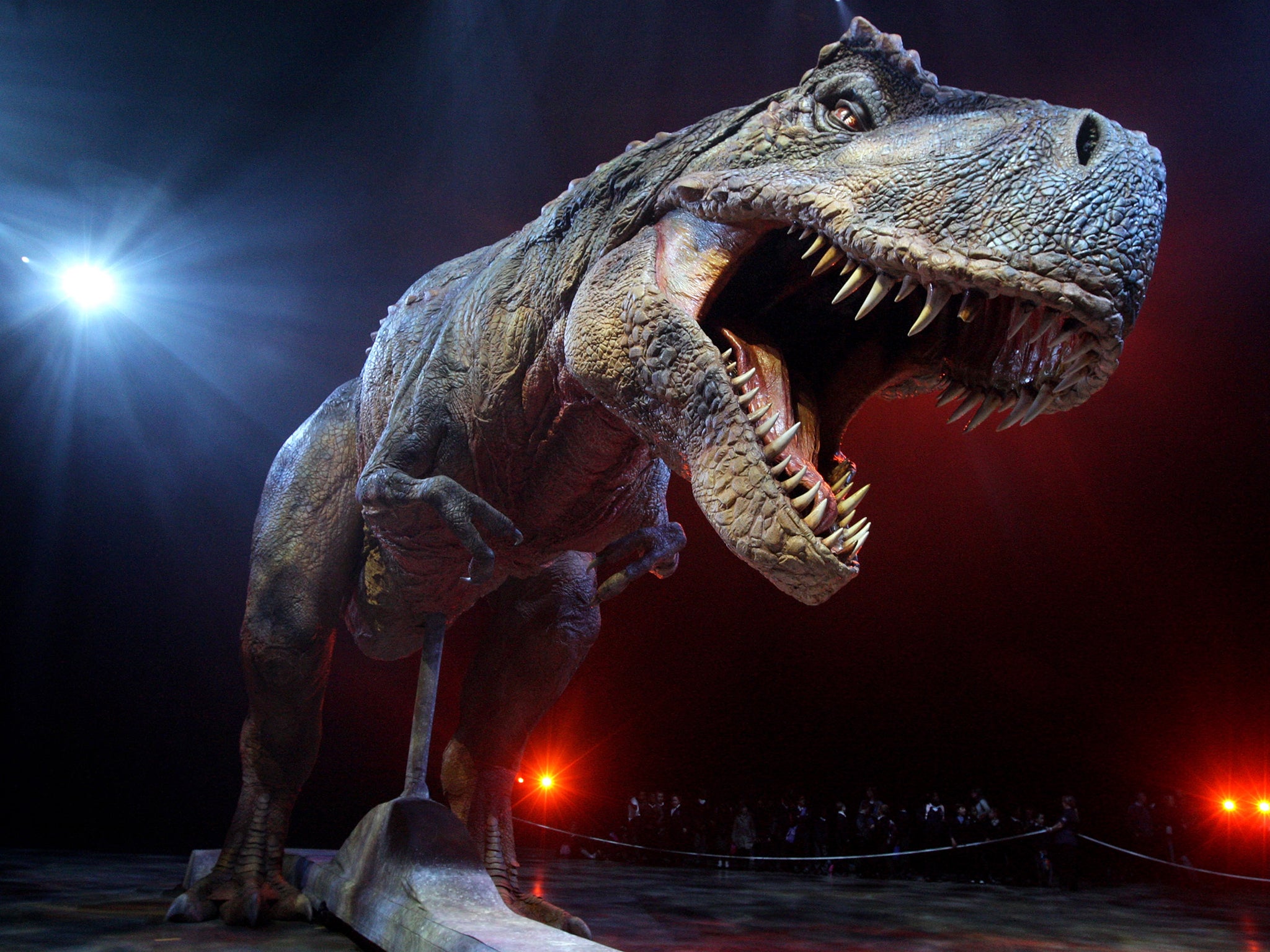Dinosaurs were almost certainly not wiped out by volcanoes, scientists say, leaving meteor as most likely killer
There were huge, erupting volcanoes on the Earth — but they weren't enough to spell the end for the dinosaurs, researchers say

Your support helps us to tell the story
From reproductive rights to climate change to Big Tech, The Independent is on the ground when the story is developing. Whether it's investigating the financials of Elon Musk's pro-Trump PAC or producing our latest documentary, 'The A Word', which shines a light on the American women fighting for reproductive rights, we know how important it is to parse out the facts from the messaging.
At such a critical moment in US history, we need reporters on the ground. Your donation allows us to keep sending journalists to speak to both sides of the story.
The Independent is trusted by Americans across the entire political spectrum. And unlike many other quality news outlets, we choose not to lock Americans out of our reporting and analysis with paywalls. We believe quality journalism should be available to everyone, paid for by those who can afford it.
Your support makes all the difference.A new study has all but confirmed that the dinosaurs weren’t killed out by a volcanic eruption, leaving a meteor impact as the probably killer.
Some scientists think that long-lasting, fiery volcanic eruptions triggered a mass extinction of the dinosaurs. But a new study has modelled the way that such an eruption would have happened, and found that they would have been nowhere near strong enough to bring about an extinction.
Instead, a giant asteroid or comet likely fell to earth about 65 million years ago, causing an impact that led the dinosaurs to die out.
That theory is believed by most scientists. But some continue to believe that a massive collection massive collection of volcanic eruptions called the Deccan Traps, around where India is now, were what finished off the dinosaurs.
Dr Anja Schmidt, from the University of Leeds, said: "At the time when the dinosaurs reigned, numerous long-lasting eruptions took place over the course of about a million years. These eruptions, called 'continental flood basalts' were not like volcanic eruptions we often see today, with lava gushing from the ground like a curtain of fire.
"Each eruption is likely to have lasted years, even decades, and eruptions were separated by periods without volcanic activity. The lava produced by an eruption of average intensity would have filled 150 Olympic-size swimming pools per minute."
But the question remained, would even such a hellish bout of volcanism have been enough to finish off the dinosaurs?
The scientists used sophisticated computer software to simulate the spread of sulphurous gas and droplet particles from the eruptions. They found that the impact on climate was nothing like as grim as had been supposed.
Although global temperatures would have cooled by as much as 4.5C due to the volcanic material blocking out the sun, they would have returned to normal in only about 50 years.
Dr Schmidt added: "Perhaps most intriguingly, we found that the effects of acid rain on vegetation were rather selective. Vegetation in some but not all parts of the world would have died off, whereas in other areas the effects would have been negligible."
The research is reported in the journal Nature Geoscience.
Additional reporting by Press Association
Join our commenting forum
Join thought-provoking conversations, follow other Independent readers and see their replies
Comments